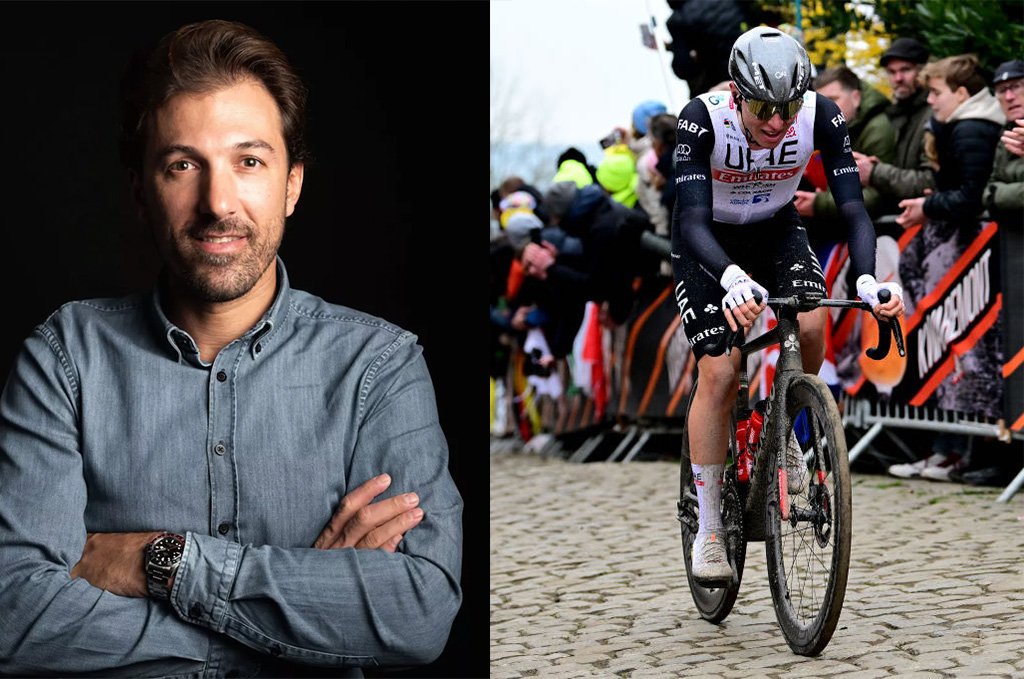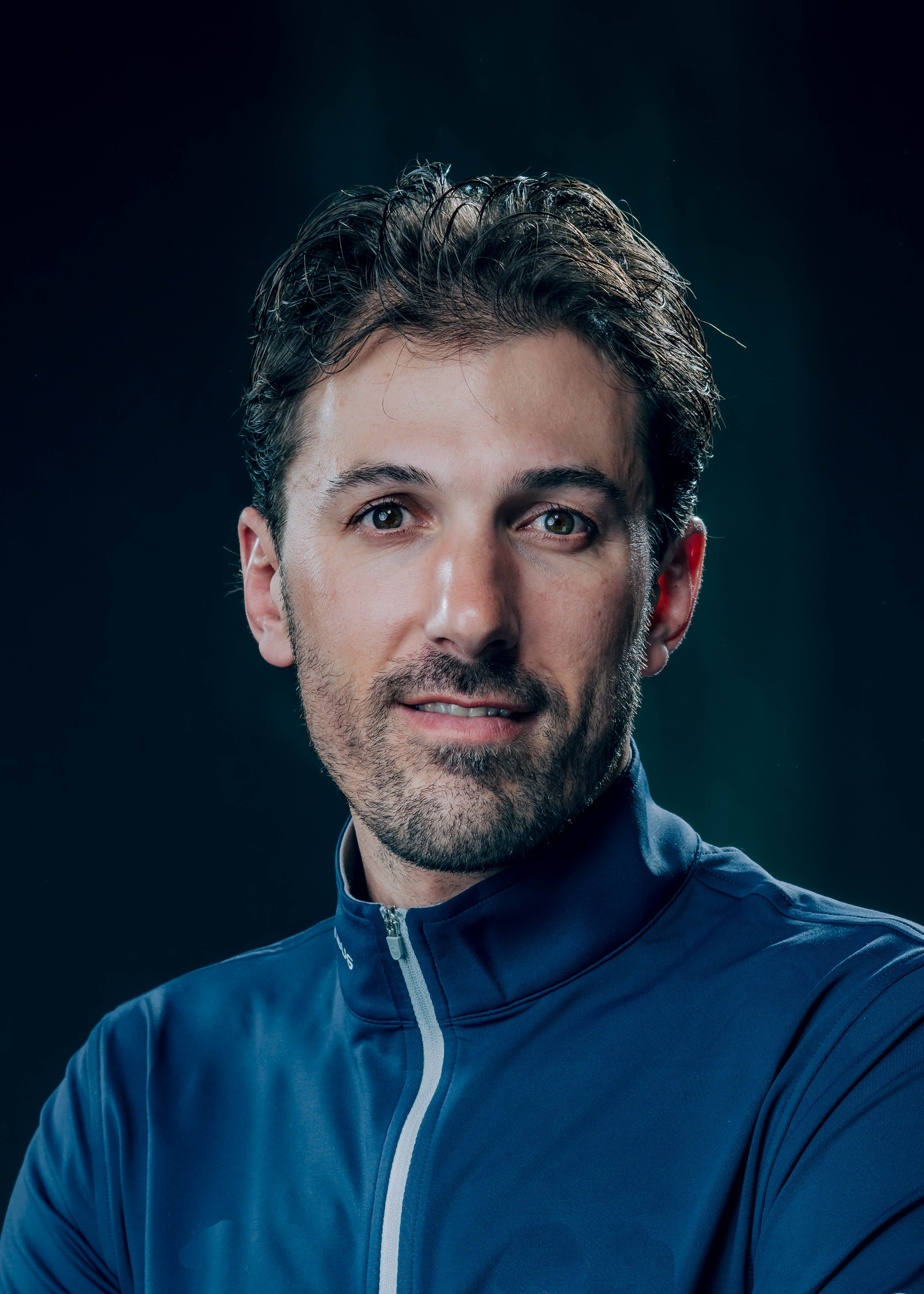Cancellara's Classics Column: The new generation and Pogacar's Paris-Roubaix chances
Is Tadej Pogacar changing the game of professional cycling?

Can Tadej Pogačar win all five Monuments and so even Paris-Roubaix? That was the question on everyone's lips after his incredible victory at the Tour of Flanders.
The very fact that we are having this discussion says a lot about how the game is changing in professional cycling, and about how Tadej is changing that game.
What's becoming clearer and clearer is that this is a full new era of cycling. Maybe in another decade we will have another era, because cycling is changing so much, who knows in which direction it will go next.
When you think about the Classics, you think about riders like Museeuw, Tafi, Ballerini, Van Petegem. These are pure Classics riders. Later on it was the same with Tom Boonen and myself. Now, we have a different generation where they are doing every kind of race.
Strade Bianche used to be more of a race for traditional Classics specialists. Now it has become more of a climber's race, or an all-rounder's race, with Julian Alaphilippe winning a couple of years ago, and Egan Bernal on the podium. Amstel Gold Race is another one that has opened itself out to a broader range of contenders.
Tadej's victory on Sunday made it the same story for the Tour of Flanders.
No one thought that these guys would come to the Classics - or that they would come and stand a chance. I remember when Nibali or Valverde used to drop into these races because there were cobbles coming at the Tour de France. The Classics riders looked them up and down and said 'hey, good luck boys'.
Get The Leadout Newsletter
The latest race content, interviews, features, reviews and expert buying guides, direct to your inbox!
But the new generation seems to be undoing all of the specialisations that came into cycling in the previous decade. I would say the modern era started with Peter Sagan, and the riders generally have become more versatile ever since.
Looking back on my career, I made a choice to be a rider for the Classics and the time trials. If I wanted to win more sprints I would have had to become a sprinter. If I wanted to do Liège and Lombardia I would have do have lost a lot of weight. But I kept going in the direction I was good at.
Now, Tadej can win the Tour de France and Tour of Flanders. He, Wout, and Mathieu are very different riders who somehow add up to match up against one another. And it's not just them, you have Pidcock, Alaphilippe... I think Remco Evenepoel could do well at Flanders, even Primož Roglič.
This is definitely a trend, an era. The question is, why? Has the Tour of Flanders changed? Is it a physical change in the riders? Could it be a new mentality in this new generation?
One factor, I believe, is equipment. Today's equipment makes you smoother over the cobbles - much smother. They're all on 28 or 32mm tyres, which is kind of a suspension in itself. I remember when Lizzie Deignan won Paris-Roubaix, it looked like she was not even bumping over the cobbles. You still need the power, of course, but it makes it more like a normal road.
Compare that to riding with the 25mm tyres like we used to. Back then, they were warrior races. They are still warrior races but the technical developments have softened things out.
Tadej Pogačar and Paris-Roubaix
So what about Tadej and Paris-Roubaix?
Look at what he did last year on the cobbled stage of the Tour de France - he looked amazing. So the potential is definitely there.
However, Paris-Roubaix is a very different race to any other - even to Flanders. The Ronde has climbs, and he used every inch of them to his advantage, but I think it's a far tougher ask on the flat sectors of Roubaix, against the likes of Ganna and Wout. I don't see where he can make his differences on the bigger guys.
After Flanders, I wrote about his watts-per-kilo advantage. At Roubaix, it's the opposite. He will have to be heavier in order to maximise his raw power.
With that sort of weight you cannot win the Tour de France, which is what he's paid to do at UAE Team Emirates. I don't think his team will let him seriously think about Roubaix or the five Monuments for now because the Tour is by far the most important thing for the team. And with the amount they are paying him, you need to win the Tour.
Longer-term, though, I do not rule anything out. He has everything on the table to win all five monuments.
He has huge talent, obviously, but he also has huge willpower. You need to have something extra that others don't have, and he just has insane levels of dedication and motivation. He also seems to enjoy himself, which is also vital.
One day may come where things are different. Let's see if Tadej comes to that point or not. Let's also see in which direction he wants to take his career.
As it stands, the world and sport of professional cycling is his oyster. He can decide how he wants to make history.
Fabian Cancellara is an ex-professional cyclist who raced from 2001 to 2016 for Mapei, Fassa Bortolo, CSC and Trek. One of a select trio of riders to have won Paris-Roubaix and the Tour of Flanders three times, alongside arch rival Tom Boonen and Johan Museeuw, he is the only racer who can add the Strade Bianche triple to that glittering statistic – first across the line in Siena at four year intervals between 2008 and 2016."Spartacus" was also a formidable time trialist: four times world champion, twice Olympic champion, his final race as a professional cyclist came in the TT at the Rio Olympics in 2016, where he triumphed over second-placed Tom Dumoulin by a staggering 47 seconds. Alongside various business interests – and being a Cyclingnews columnist, of course – Cancellara is a founder of the Tudor Pro Cycling team, currently racing at UCI Pro Team level.
